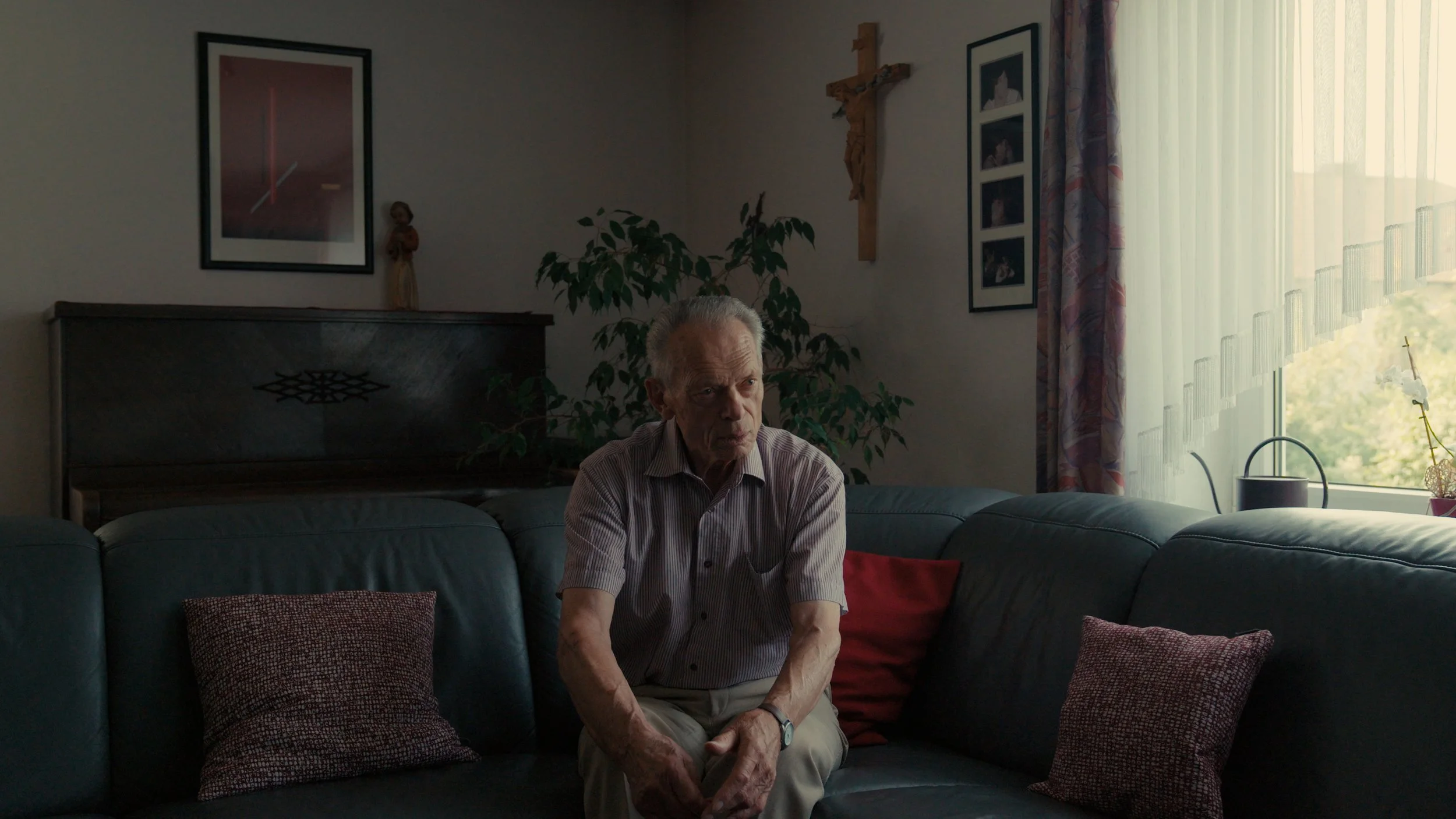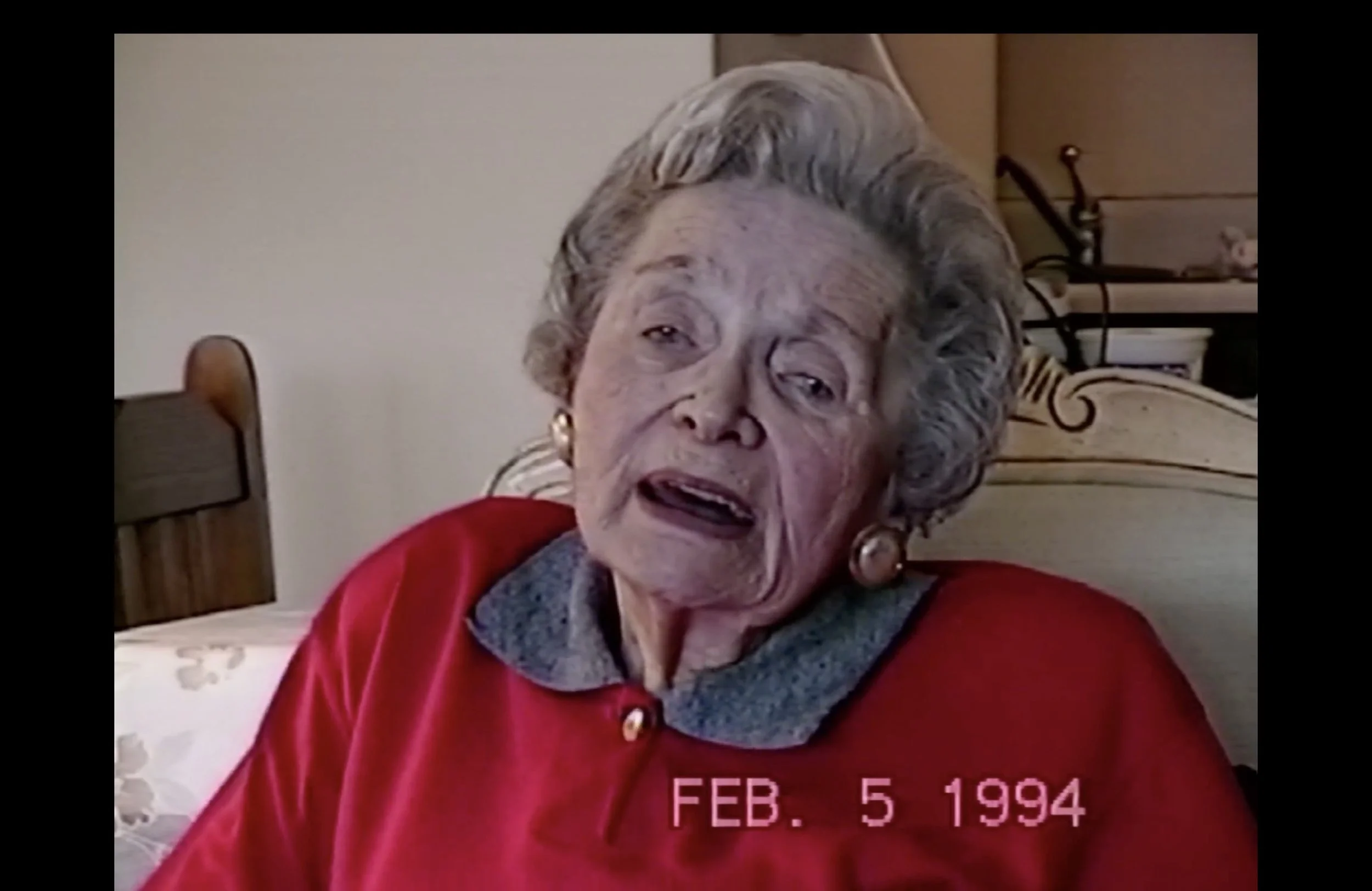Now It's a Strange House
Through 30-year-old videotapes of Ethan’s great-grandmother & recently captured digital footage, Now It's a Strange House explores how the small German village of Eubigheim grapples with the history of their Nazification and the rise of fascism in Germany today. Forced to relive narratives that have largely been forgotten by the current generations, the townspeople are confronted with the possibility that they may be less accepting of others than they once imagined.
After 85 years and four generations of exile from the small town of Eubigheim, Germany, the Rosenthal family is finding answers to questions they assumed would remain forever unanswered. After the recent (re)discovery of Hi-8 interview footage of family matriarch, Beate Bruckheimer Rosenthal (1910-1998), new and curious stories of her family’s life as cattle dealers in south-central Germany, their timely escape from the clutches of the Third Reich, and their adjustment to life in Cleveland, Ohio have emerged, intimate and profound. But, along with this historical revival, comes a modern-day crossroads of rising fascism in both the US and Germany, and Eubigheim is no exception to this political upheaval.
To forge connections between current and past residents of Eubigheim, Ethan Rosenthal Grossman (Beate’s great-grandson) and Cate Knothe spent over two weeks immersed in the town. Emphasizing the power of contemporary footage to affect the archive and allowing townspeople to tell their stories, the pair link two disparate, but thematically parallel times.
Even amongst the Merkert family, former close friends and neighbors of Beate’s, who not only purchased the Rosenthal’s house in 1938, but who continue to live in the home today, there was an overwhelming disconnect from the past within the village that differs from the vigilant, militantly apologetic stereotype of Germany’s memorial culture. By sharing clips of Beate’s memories with residents of a town where 25% supported Germany’s far-right party, the AfD, in recent national elections, the filmmakers engage the townspeople in much-needed conversations about the past, raising questions about how best to memorialize their long-lost Jewish neighbors and accept new neighbors that enter the village from faraway lands today.
Interweaving footage of modern Eubigheim and the 30-year-old tapes of Beate, the 30-minute film aims to showcase all that changes and remains the same in a town of 750 in the high valley of rural Germany. As much as the residents of Eubigheim may choose to forget their own narratives relating to the war, Ethan, like so many other Jews, is not awarded that same privilege. To that effect, Grossman and Knothe illustrate connections between the universally loathed period of National Socialism and the modern-day rise of German nationalism and anti-immigration policies/sentiments.
Producer/Director - Ethan Grossman
Producer/Director/Editor - Cate Knothe
Director of Photography - Lilit Danielyan
How to Donate:
Donate by credit card at the Donate button on the top of this page. To donate by check or direct deposit, visit this page.



